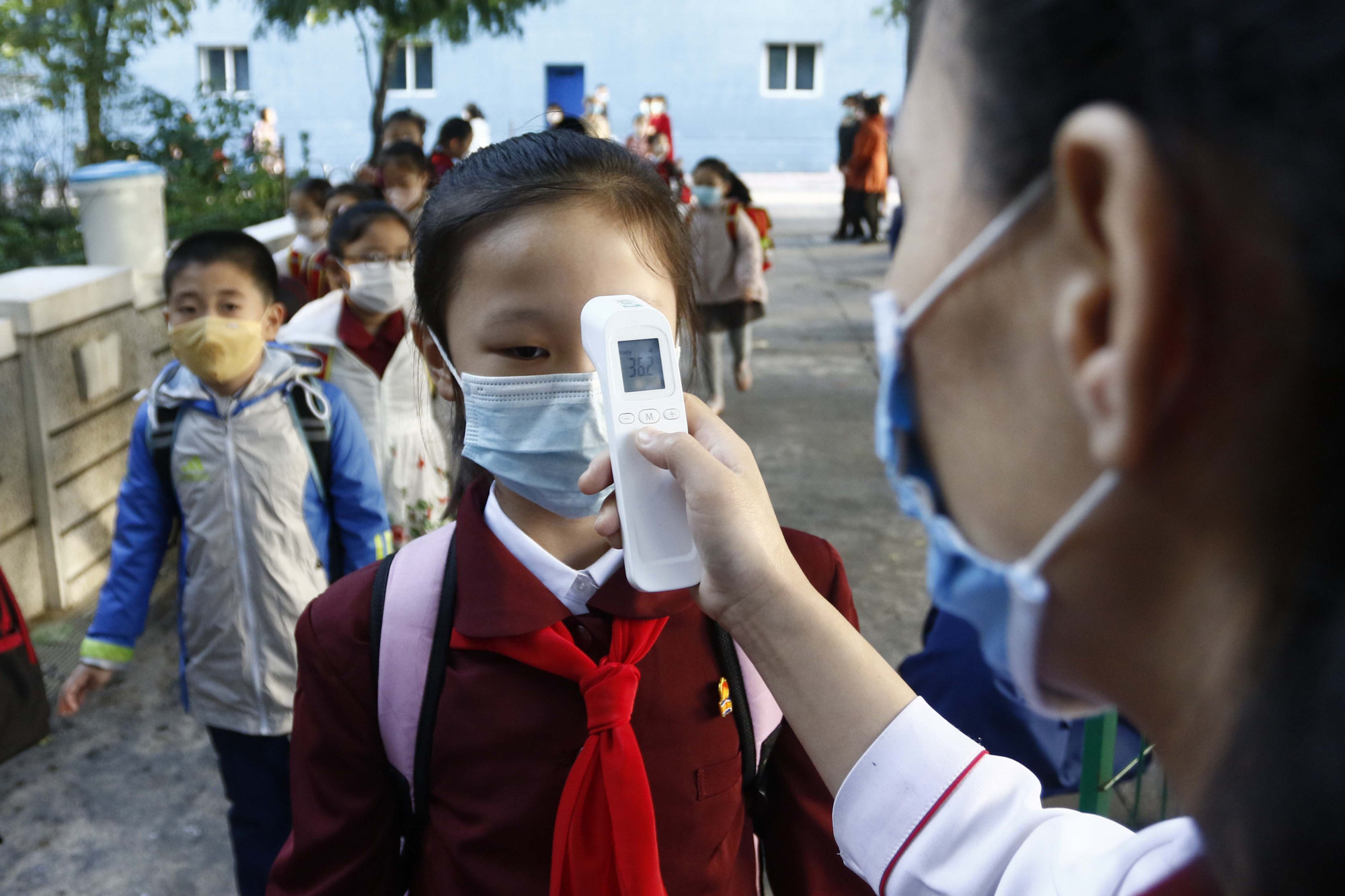
Coronavirus: North Korea tops 1.2 million ‘fever’ cases with over 500,000 in quarantine
- State media did not specify how many of the cases were confirmed as Covid-19. Experts say the country likely lacks the necessary testing supplies and equipment
- Eight new deaths on Monday brought the toll from North Korea’s outbreak to 50. Most of the country’s 26 million people are thought to be unvaccinated
State media did not specify how many of the fever cases and deaths were confirmed as Covid-19 cases. Experts say North Korea likely lacks testing supplies and equipment to confirm coronavirus infections in large numbers and is mostly relying on isolating people with symptoms at shelters.
Failing to slow the virus could have dire consequences for North Korea, considering its broken healthcare system and that its 26 million people are believed to be unvaccinated, with malnourishment and other conditions of poverty.
Kim during a ruling party Politburo meeting on Sunday criticised government and health officials over what he portrayed as a botched pandemic response, saying state medicine supplies aren’t being supplied to pharmacies in time because of their “irresponsible work attitude” and lack of organisation, the North’s official Korean Central News Agency said.
He ‘sent a message’. So what can Asia take away from Kim Jong-un’s speech?
The Politburo had issued an emergency order to immediately release and quickly distribute state medicine reserves and for pharmacies to switch over to 24-hour shifts, but Kim said such steps weren’t being properly implemented. Kim ordered that the medical units of his military to get involved in stabilising the supply of medicine in Pyongyang, KCNA said.
Kim and Politburo members after the meeting made on-site inspections of pharmacies in a district in Pyongyang, where Kim lamented that most of the shops were in poor condition and lacked storage spaces and criticised some pharmacists for not wearing proper white gowns.
North Korea’s claim of a perfect record in keeping out the virus for 2 1/2 years was widely doubted. But its extremely strict border closure, large-scale quarantines and propaganda that stressed antivirus controls as a matter of “national existence” may have staved off a huge outbreak until now. It is unclear if North Korea’s urgent messaging about its outbreak indicates a willingness to receive outside help.

The country shunned millions of vaccine doses offered by the UN-backed COVAX distribution programme, likely because they carried international monitoring requirements.
Inter-Korean relations have deteriorated since 2019 after the larger negotiations between the US and North Korea collapsed over disagreements involving the North’s nuclear arsenal and US-led sanctions.
Chinese officials said last week that Beijing was ready to offer help but they had no information about any such request being made.
Why did North Korea reject 3 million Sinovac vaccine doses?
Even as he called for stronger preventive measures to slow the spread of Covid-19, Kim also stressed that the country’s economic goals should be met, which likely means huge groups will continue to gather at agricultural, industrial and construction sites.
State media in recent weeks have emphasised farming campaigns to protect crops amid a drought during rice-planting season, a worrisome development in a country with chronic food shortages. Kim is also intent on achieving his stated goals in a five-year national development plan announced in early 2021 after he showed unusual candour by acknowledging that his previous economic plans weren’t working.


